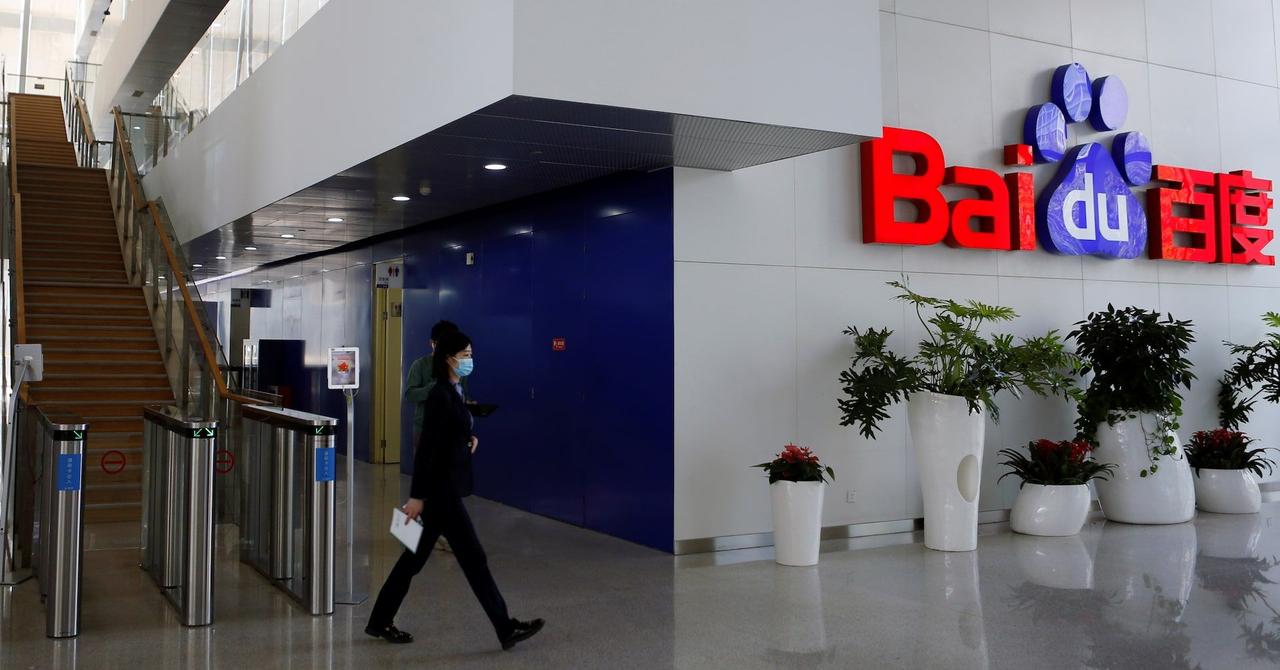Baidu Unveils Advanced AI Tools: Text-to-Image Generator and No-Code App Builder
3 Sources
3 Sources
[1]
Baidu Boosts AI Capabilities with Advanced Text-to-Image Generator and No-Code App Builder
Baidu's New AI Innovations: Text-to-Image Technology and No-Code App Development Tools Unveiled At the annual Baidu World Conference on November 12, Baidu Inc., China's leading search engine company, unveiled several significant advancements to its artificial intelligence technology suite. According to Reuters, these innovations, which include a powerful text-to-image generator named I-RAG and a no-code application builder, represent Baidu's focus on commercialising AI-driven applications to empower users across industries. Following years of significant investment in Baidu's research and development of AI, the company has moved to sell large language model applications to consumers. This put Baidu right in the position with world-leading fellow tech peers like OpenAI, which focuses on providing real-time efficient, intelligent artificial solutions adapted to the Chinese market and other global markets. Finally, CEO Robin Li provided updates about its progress; Baidu's Ernie platform for natural language processing today handles over 1.5 billion interactions daily, up from 200 million daily queries in May. Ernie is the flagship of Baidu's AI and was built for a variety of uses in text generation, question-answering support, and more, in the company's ecosystem. One of the conference's standout announcements was the launch of I-RAG, Baidu's advanced text-to-image tool that tackles a common challenge in AI-generated images: "hallucination." In AI, "hallucination" means that models can put wrong and imaginary objects into images. This way, I-RAG wants to benefit from Baidu's large search database to generate more realistic and accurate images that are closer to the input text, which will create more precisely tailored results for the users. In addition to I-RAG, Baidu introduced Miaoda, an application that uses its LLM capabilities to simplify coding, allowing users without extensive coding knowledge to create software applications. This no-code tool makes app development accessible to a wider audience, supporting individuals and businesses eager to leverage AI without requiring technical expertise. AI commercialization at Baidu not only refers to a single application. Some of the new features have been embedded in current services and these have been provided to external consumers through Baidu Cloud. Moreover, it also demonstrated plenty of AI-related equipment including a smart glasses product developed by Baidu's subsidiary company, Xiaodu. These glasses with cameras and based on the Ernie platform provide voice control and enable users to interact with photos and videos as easily as possible. Unlike competitors who are optimizing everything in one application, Baidu is using AI in one-appeal applications that can perform unique functions without cluttering them together in one application. This direction is different from ByteDance, which released several separate AI-based applications during the past year. With such splendid instruments, is underlining the company's position as one of the pioneers in the sphere of AI and helps both the ordinary consumer and corporations to boost their efficiency as a result of shaping up better tools and methods for working, creating, and designing.
[2]
Baidu bolsters AI lineup with text-to-image generator, no-code app builder
BEIJING (Reuters) - China's Baidu Inc unveiled a slew of new applications for its artificial intelligence technology on Tuesday, including a text-to-image generator and a tool that enables users to develop software applications without coding expertise. The country's leading search engine company is among tech firms shifting their focus to the commercialization of large language model (LLM) applications after nearly two years of heavy investment in research and development in models that they tout as alternatives to OpenAI's GPT. At the annual Baidu World Conference, CEO Robin Li introduced I-RAG, a text-to-image technology that leverages Baidu's search capabilities to address the "hallucination" issue, referring to the generation of images that deviate from the input text or contain non-existent elements. Li said the company's Ernie platform now handles 1.5 billion user queries and interactions daily, a significant increase from the 200 million daily requests reported in May. These interactions include tasks such as generating text, answering questions, and assisting with various applications utilizing AI. Baidu's commercialization efforts have largely revolved around its AI agents, which allow users to create their own applications. The company has also integrated the technology into its existing product lineup and offering it to external users via its cloud services. Baidu also unveiled a pair of glasses featuring a built-in AI assistant, developed by it hardware division, Xiaodu. The gadget is equipped with cameras to capture photos and videos and supports voice interactions powered by Ernie. The company is not aiming to create a "super app" based on AI, Li said, signalling a divergence in strategy from other companies such as ByteDance, which has launched multiple standalone AI apps this year. Baidu also introduced Miaoda, which utilizes its LLM capabilities to generate code, allowing users to develop software applications without extensive coding expertise. (Reporting by Liam Mo and Brenda Goh; Editing by Rashmi Aich)
[3]
Baidu Might Have Unveiled New AI Image Generator and No-Code Platform
The no-code platform Miaoda reportedly uses AI capabilities Baidu, the Chinese tech giant, reportedly announced two new artificial intelligence (AI) platforms on Tuesday. As per a report, the company introduced a text-to-image generator dubbed I-RAG and a no-code platform called Miaoda. The new AI platforms were said to be showcased at the Baidu World Conference, the company's annual event. Additionally, the company also plans to launch new AI-integrated smart glasses. These glasses will be equipped with a dedicated AI assistant. The tech giant reportedly highlighted that after substantial research in the field, it now wants to commercialise its AI technology. According to The Economic Times, the Chinese multinational company showcased new AI innovations at its conference. Among them is said to be I-RAG, the company's native text-to-image generator. While Baidu entered the AI image generation game late, the company reportedly claimed that it used Baidu's search engine capability to ensure the instances of hallucinations could be minimised. Another innovation showcased by the company was a no-code platform dubbed Miaoda, as per the report. No-code platforms are used for software, website, and app creation, and they can be used by those who do not know how to write code. Such platforms use visual and interactive elements to help users design what they want, and they automate the coding process in the background. With Miaoda, Baidu will reportedly allow users to develop software without coding skills. Users are said to be able to write a prompt about what they want and the AI can generate a prototype, which can further be edited and customised using prompts as well as visual editing tools. Further, the company has announced its plans to launch AI-powered smart glasses in China next week. Like the Meta Ray-Ban, it will also come with an AI assistant that will help users in various real-life situations. During the event, Baidu reportedly highlighted that its AI chatbot Ernie is handling 1.5 billion user queries per day, marking a steep rise from the 200 million daily requests reported in May. However, the company reportedly denied claims of launching an AI-powered super app and instead will focus on specialised tools.
Share
Share
Copy Link
Baidu introduces I-RAG, an advanced text-to-image generator, and Miaoda, a no-code app development platform, at its annual World Conference, showcasing its commitment to AI commercialization and innovation.

Baidu Showcases New AI Innovations at Annual Conference
Chinese tech giant Baidu Inc. unveiled a series of groundbreaking artificial intelligence (AI) tools at its annual Baidu World Conference on November 12, 2023. The company's latest offerings, including an advanced text-to-image generator and a no-code application builder, underscore its commitment to commercializing AI-driven applications and maintaining its position as a leader in the field
1
2
.I-RAG: Tackling AI Image Generation Challenges
One of the standout announcements was the launch of I-RAG, Baidu's sophisticated text-to-image generation tool. This innovative technology aims to address a common issue in AI-generated images known as "hallucination," where models produce images with inaccurate or non-existent elements
1
2
.I-RAG leverages Baidu's extensive search capabilities to generate more realistic and accurate images that closely align with the input text. By tapping into the company's vast search database, I-RAG is designed to produce more precisely tailored results for users, potentially setting a new standard in AI image generation
1
3
.Miaoda: Democratizing App Development
In addition to I-RAG, Baidu introduced Miaoda, a no-code application development platform that utilizes the company's Large Language Model (LLM) capabilities. This tool is designed to simplify the coding process, allowing users without extensive programming knowledge to create software applications
1
2
.Miaoda enables users to develop software by writing prompts about their desired outcomes. The AI then generates a prototype, which can be further refined using additional prompts and visual editing tools. This innovation makes app development more accessible to a wider audience, supporting individuals and businesses eager to leverage AI without requiring deep technical expertise
3
.Ernie Platform: Rapid Growth in AI Interactions
During the conference, Baidu CEO Robin Li provided updates on the company's progress in AI adoption. The Ernie platform, Baidu's flagship natural language processing system, now handles over 1.5 billion interactions daily, a significant increase from 200 million daily queries reported in May
1
2
.This substantial growth demonstrates the increasing integration of AI into various aspects of user interactions, including text generation, question-answering, and other applications within Baidu's ecosystem
1
.Related Stories
AI-Powered Smart Glasses
Baidu also showcased AI-related hardware, including smart glasses developed by its subsidiary, Xiaodu. These glasses feature built-in cameras and are powered by the Ernie platform, offering voice control and enabling users to interact with photos and videos seamlessly
1
3
.Baidu's AI Commercialization Strategy
Unlike some competitors who are developing all-in-one AI applications, Baidu is focusing on creating specialized AI tools for specific functions. This approach allows for more targeted and efficient AI solutions across various domains
1
.The company is integrating its AI innovations into existing products and offering them to external users through Baidu Cloud. This strategy not only enhances Baidu's current services but also positions the company as a key provider of AI solutions for businesses and developers
1
2
.As Baidu continues to advance its AI capabilities, these new tools and platforms demonstrate the company's commitment to innovation and its potential to shape the future of AI technology in China and beyond.
References
Summarized by
Navi
[1]
[2]
Related Stories
Baidu Launches ERNIE 5.0 AI Model, Claims Performance Edge Over GPT-5 and Gemini 2.5 Pro
13 Nov 2025•Technology

Baidu's Q1 2025 Earnings: AI Cloud Soars Amid Challenges and Opportunities
21 May 2025•Technology

Baidu Unveils Advanced AI Chip Cluster and New Models, Challenges DeepSeek's Dominance
25 Apr 2025•Technology

Recent Highlights
1
Pentagon threatens to cut Anthropic's $200M contract over AI safety restrictions in military ops
Policy and Regulation

2
ByteDance's Seedance 2.0 AI video generator triggers copyright infringement battle with Hollywood
Policy and Regulation

3
OpenAI closes in on $100 billion funding round with $850 billion valuation as spending plans shift
Business and Economy




